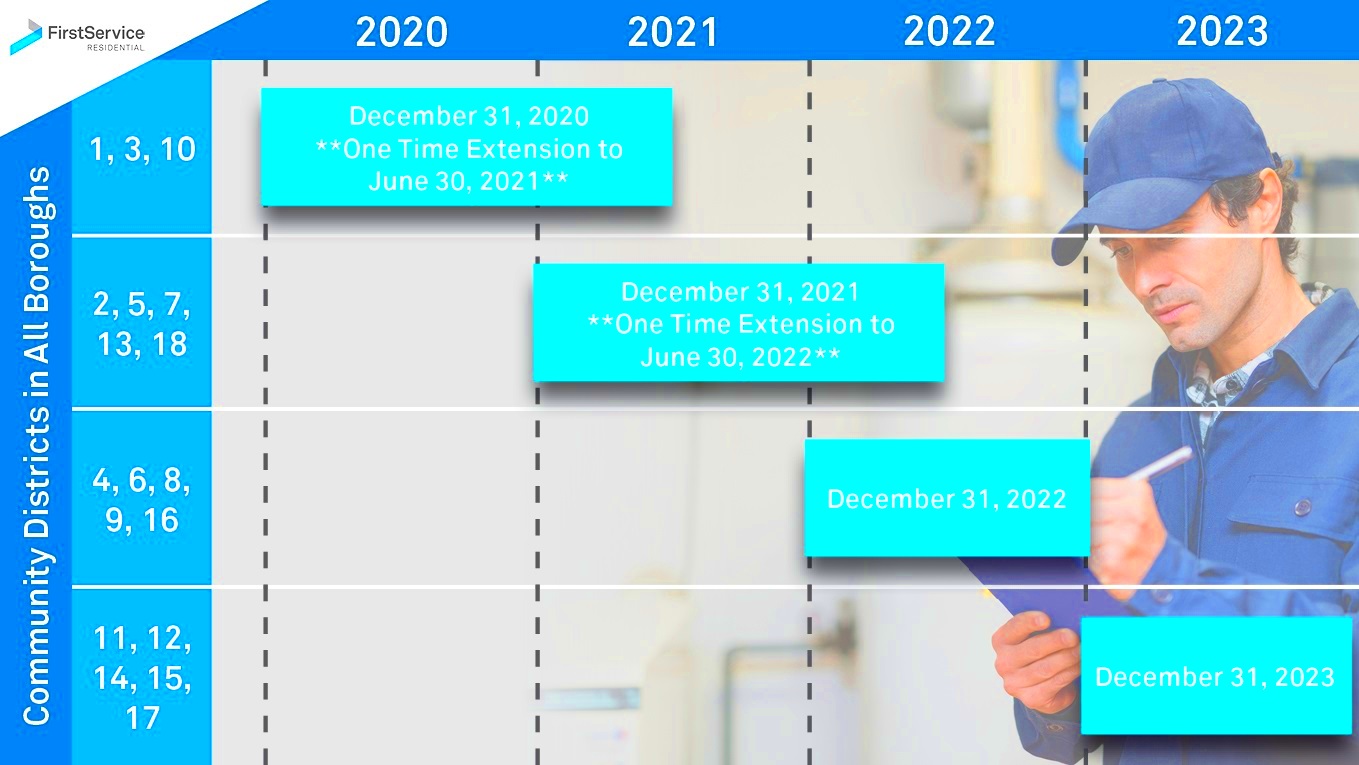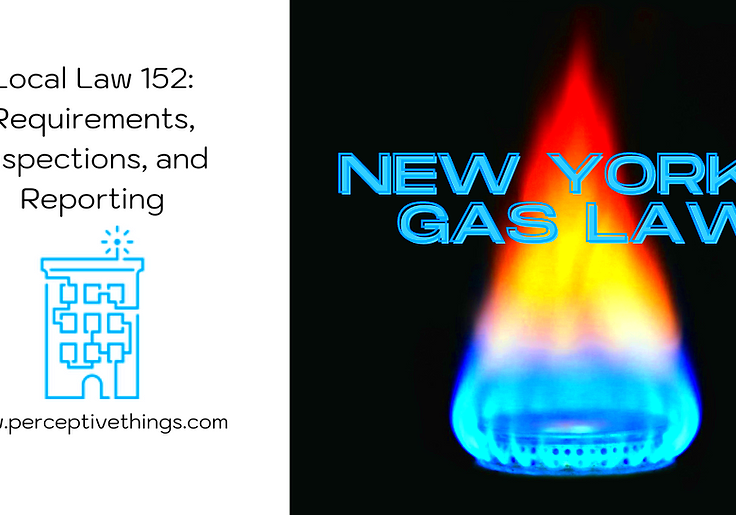Local Law 152 Inspection Costs and Requirements
Local Law 152 is a critical regulation that ensures the safety and maintenance of gas piping systems in buildings. Implemented in New York City, it mandates inspections to identify any potential hazards that could lead to leaks or other dangerous situations. Understanding this law is essential for property owners and managers to ensure compliance, avoid penalties, and maintain a safe environment for tenants and visitors.
Understanding Inspection Requirements

Inspections under Local Law 152 are designed to assess the condition of gas piping systems. Here’s what you need to know about the requirements:
- Frequency of Inspections: Inspections must be conducted every four years.
- Qualified Inspectors: Only licensed professionals are allowed to perform these inspections.
- Documentation: Property owners must keep records of all inspections and any necessary repairs.
It’s important for property owners to stay informed about when inspections are due and to ensure they are conducted by qualified personnel. Failure to comply can lead to significant penalties and safety risks.
Types of Inspections Under Local Law 152
Local Law 152 outlines several types of inspections, each focusing on different aspects of gas piping systems. Here are the main types:
- Visual Inspections: This is the first step, where inspectors look for obvious signs of damage or wear.
- Leak Testing: Inspectors perform tests to check for gas leaks using specialized equipment.
- Pressure Tests: These tests ensure that the system can handle normal operating pressures without leaks.
Each type of inspection plays a vital role in maintaining safety and compliance. Property owners should familiarize themselves with these inspection types to better prepare for the process and address any potential issues before they escalate.
Factors Influencing Inspection Costs
The cost of inspections under Local Law 152 can vary widely based on several factors. Understanding these elements can help property owners budget more effectively. Here are the main factors that influence inspection costs:
- Size of the Property: Larger buildings with extensive gas piping systems typically incur higher inspection fees due to the time and labor involved.
- Condition of the Gas System: If the gas piping system requires repairs or is in poor condition, this can lead to additional costs for further inspections and maintenance.
- Location: Inspection costs may differ depending on the region or neighborhood, as some areas may have higher demand for inspection services.
- Experience of the Inspector: More experienced inspectors might charge higher fees, but their expertise can be beneficial in identifying issues.
- Required Testing: If your system needs specialized tests, such as pressure testing or advanced leak detection, these can add to the overall cost.
By considering these factors, property owners can gain a clearer picture of what to expect when budgeting for Local Law 152 inspections.
Average Costs for Local Law 152 Inspections
When planning for Local Law 152 inspections, it’s helpful to have an idea of the average costs involved. While prices can vary, here’s a rough breakdown:
| Type of Inspection | Average Cost |
|---|---|
| Visual Inspection | $200 – $500 |
| Leak Testing | $150 – $400 |
| Pressure Testing | $300 – $700 |
| Full Comprehensive Inspection | $500 – $1,500 |
These averages give you a ballpark figure, but it’s always best to get multiple quotes from licensed inspectors. Keep in mind that the costs may also change based on the factors mentioned earlier, so being proactive can help you manage expenses effectively.
Preparing for an Inspection
Preparation is key to a smooth inspection process under Local Law 152. Here are some steps you can take to ensure everything goes well:
- Schedule in Advance: Don’t wait until the last minute. Schedule your inspection well ahead of time to ensure availability.
- Gather Documentation: Have all relevant documents ready, including previous inspection reports, maintenance records, and any repair work done.
- Clear Access Points: Make sure the inspector can easily access all areas of the gas piping system. Remove any obstacles that might hinder the inspection.
- Notify Occupants: If your property is occupied, inform tenants about the inspection schedule. This helps ensure they are prepared and available for any necessary discussions.
- Discuss Concerns: Talk to your inspector about any specific concerns you may have regarding the gas system. This way, they can pay extra attention to those areas during the inspection.
By taking these steps, you can help facilitate a thorough inspection and potentially minimize any issues that might arise.
Consequences of Non-Compliance
Failing to comply with Local Law 152 can have serious implications for property owners. Understanding these consequences is crucial to maintaining safety and avoiding penalties. Here are some potential outcomes of non-compliance:
- Fines and Penalties: The city imposes fines for not conducting inspections on time. These fines can add up quickly, leading to significant financial strain.
- Legal Liabilities: In the event of a gas leak or incident, property owners may face legal action from affected parties, which can lead to costly lawsuits.
- Increased Insurance Costs: Insurance companies may raise premiums for properties that are not compliant with safety regulations, resulting in higher ongoing costs.
- Negative Impact on Property Value: Properties with outstanding compliance issues may suffer a decrease in value, making it harder to sell or rent.
- Safety Risks: Ultimately, non-compliance increases the risk of gas leaks and other safety hazards, putting tenants and neighbors in danger.
Staying compliant with Local Law 152 not only helps avoid these consequences but also promotes a safe living environment for everyone involved.
Frequently Asked Questions
Many property owners have questions about Local Law 152 and the inspection process. Here are some of the most common queries:
- How often do I need to get my gas system inspected? Inspections are required every four years.
- What happens if I miss the inspection deadline? You may face fines and other penalties for non-compliance.
- Who can perform the inspections? Only licensed professionals are allowed to conduct inspections under Local Law 152.
- Can I use the same inspector for each inspection? Yes, you can, but it’s wise to compare quotes and services from different inspectors periodically.
- What should I do if my inspector finds issues? Address the problems promptly and keep documentation of all repairs and follow-up inspections.
If you have more questions, don’t hesitate to reach out to a qualified inspector or your local authority for guidance.
Conclusion
Understanding Local Law 152 is essential for property owners in New York City. By being aware of inspection requirements, associated costs, and the importance of compliance, you can protect your property and ensure a safe environment for your tenants. Regular inspections not only help you avoid fines and legal issues but also contribute to the overall safety and value of your property. Always stay informed, prepare adequately for inspections, and work with licensed professionals to keep your gas piping systems in top shape. With the right approach, you can navigate Local Law 152 confidently and successfully.


